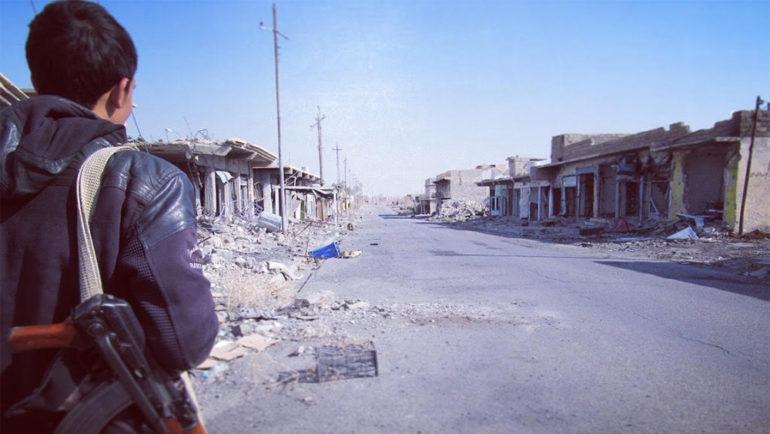A New Generation of Women Filmmakers on the Rise in Catalonia
By Emilio Mayorga
LOS ANGELES (Variety.com) – Laureled abroad and lauded at home, a young generation of women Catalan filmmakers started breaking through two years ago, led by Carla Simon’s 2017 Berlin first-feature winner “Summer 93.” Since then a bevy of female directors have emerged, making intimate character-driven dramas rich in observational psychological detail, some drawn from personal experience.
The ranks of women Catalan helmers have swelled substantially with, in various states of production, Clara Roquet’s “Libertad,” Belén Funes’ “A Thief’s Daughter,” Ángeles Hernández ’s “Isaac,” Lucía Alemany’s “Innocence” and Pilar Palomero’s “Girls.”
“It’s remarkable the impact that so-called small films have had on festival circuits,” says Roquet, whose “Libertad” won the Arte Kino Intl. Prize at San Sebastian’s Europe-Latin American Co-Production Forum in September.
Many, like Simón, whose “Alcarrás” was a Berlinale Co-Production Market winner in February, are onto their second or even third feature.
Women are exploring new terrain, in both the geographical and cinematic senses. Meritxell Colell’s “Duo” takes place in the Andes; Neus Ballús’ “Staff Only,” which premiered at March’s Malaga Festival, is set in Africa.
Women are also exploring multifarious genres, from mainstream comedy as in Carol Rodríguez Colás’ “Chavalas” to Alice Waddington’s Sundance-selected “Paradise Hills,” a sci-fi drama-thriller set on a Pacific Island correctional center for girls.
Selected for this year’s Cannes Cinéfondation Atelier, “Sinjar,” by Anna Bofarull (“Barcelona 1714”) would be the first Catalan film to tackle the subject of Islamic extremism. The film weaves three women’s stories — a middle-age woman in search of her son who recently joined the extremists; a Yazidi slave being held captive with her children in Syria; and a young woman who escapes captivity and joins the Kurdish militias.
“The female presence is strengthening, and expanding its point of view over the human condition,” Colell says. “Female characters are ever more and more complex.” Their new Catalan films “aren’t all about vindication exactly, there’s no single direction.”
These directors “aren’t just exploring the female condition, but always come from the condition of being female,” Ballus says.
But the women are still somehow perceived as possessing a risk factor, as not entirely established “newcomers,” she adds.
Many of Catalonia’s young female directors are merely taking on the lessons of Barcelona’s prestigious film schools such as the Escac, which encourages students to experiment across a broad gamut of styles. Alums include “Jurassic World: Fallen Kingdom’s” J.A. Bayona.
Productions led by women can also look to extra funding from the Catalan Institute for Cultural Cos. (ICEC), its main public sector agency. Over the past two years, 45.5% of the projects to receive grants have been female-driven, according to ICEC sources.
The consolidation of a new generation of female filmmakers isn’t the only encouraging trend in . Genre movies, which helped put a turn-of-the century industry on the map, are enjoying a renaissance.
With offices in Mexico and Barcelona, BTF Media has in post-production Ramiro García Bogliano’s vengeance-thriller “Expansivas,” about two sisters seeking justice after their mother’s murder. A thriller adapting Eva García Sáenz bestselling book, Daniel Calparsoro’s “Twin Murders: The Silence of the White City” is set up at Rodar y Rodar and Atresmedia Cine; Academy Award-nominated for the short of the same title, Rodrigo Sorogoyen’s “Madre” is tipped for a fall festival run.
The main challenge is now financing.
After Spain’s Constitutional Court annulled a governmental regional levy on telecoms, ICEC’s annual funding plunged 41% from €20.9 million ($23.5 million) in 2017 to $13.9 million last year.
Hanging over the head of regional pubcaster TVC, the co-driver in the past decade of Catalonia’s film and TV industry, are claims made by Spain’s Ministry of Finance that it owes a total $170 million in Value Added Tax.
TVC co-produced Catalan movies to the tune of $7.6 million in 2015, but $4.8 million last year.
John Hopewell contributed to this report.

